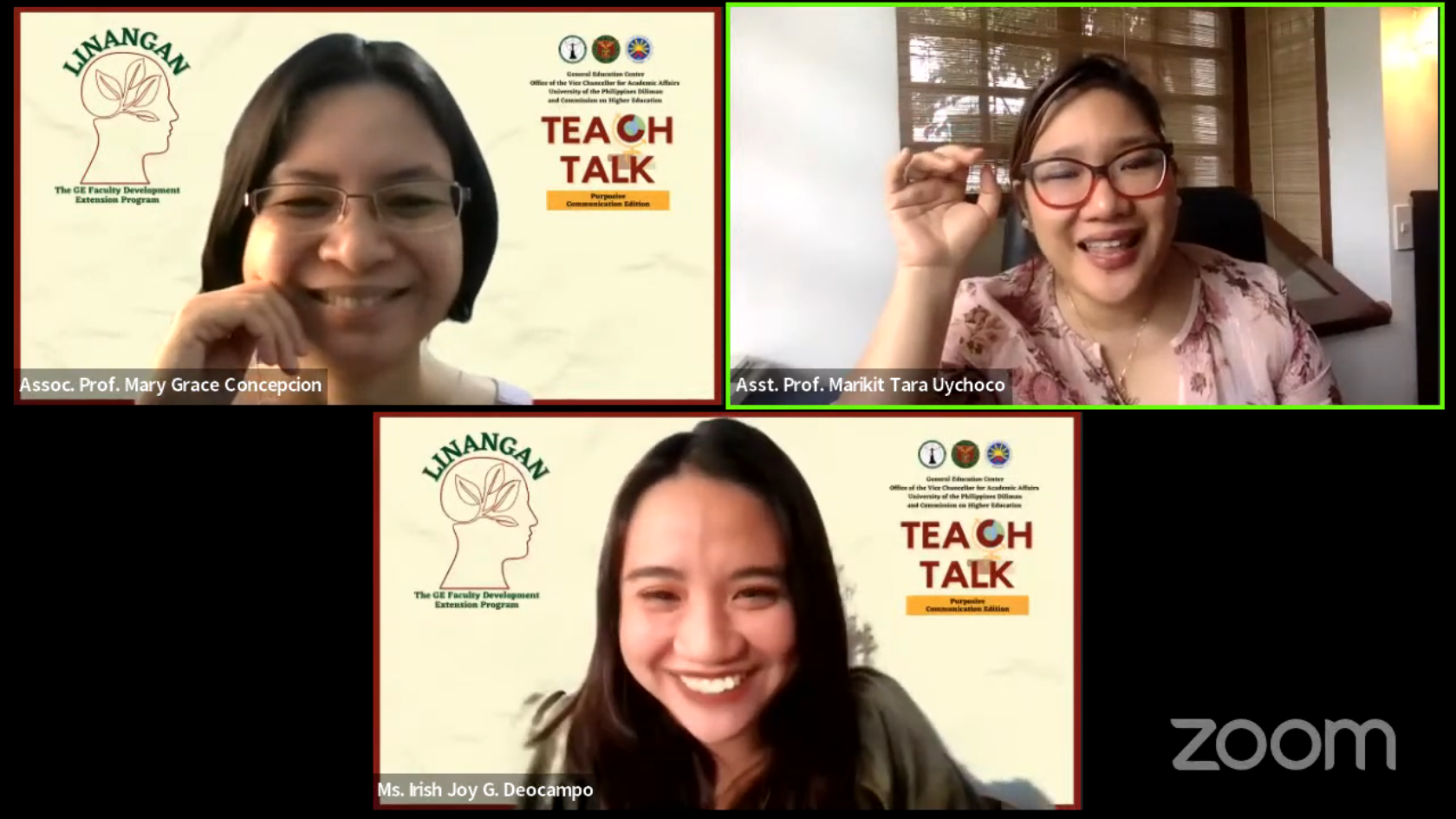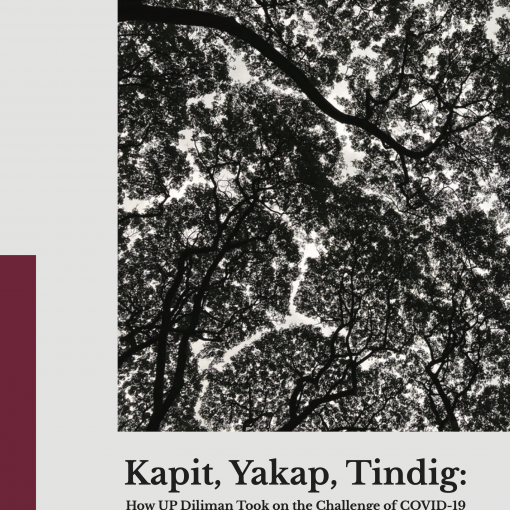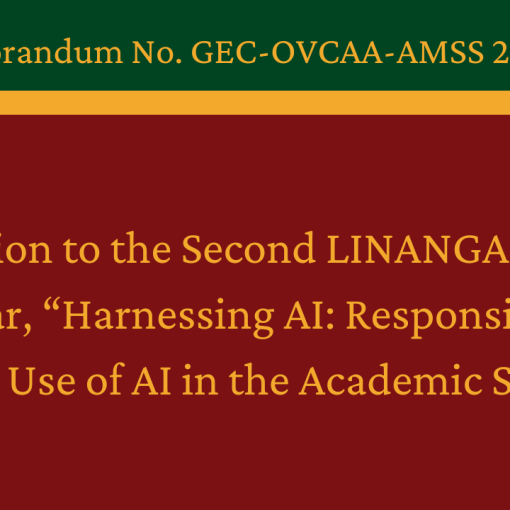Honor and excellence are the foundational principles of UP education that every student must learn. This includes being proficient in communicating ideas. Currently, the General Education course Purposive Communication addresses the need to cultivate this proficiency, providing students with “opportunities for communicating effectively and appropriately to a multicultural audience”. However, the course goes beyond this need, as there are pressing challenges and new trends that teachers must be aware of.
“Purposive Communication is at its very core, context-specific communication … It is equally important to think about how you are going to communicate something versus what you are going to communicate. Because Purposive Communication is precisely that: you have a purpose for communicating a particular idea…”, said Assistant Professor Irish Joy Deocampo during the Teach Talk (Purposive Communication Edition) webinar held last March 21.

In the webinar, professors from the UP Diliman Department of English and Comparative Literature discussed the topic of teaching Purposive Communication. Both speakers shared their experiences of teaching English 30 (English for the Professions), focusing on the course content and handling, as well as critical insights regarding the use of English language.
The first speaker, Assistant Professor Marikit Tara Uychoco, is a co-author of the textbook “Communication for Society: Purposive Communication” which she also used as basis for her discussion entitled, “Play the Game! Power Dynamics, World Englishes, and Gamification”. She began by comparing Purposive Communication with English 30, its equivalent course in UP Diliman. In making her class more engaging, she divulged to participants that she uses gamification techniques employed by apps such as Duolingo and Jeopardy Labs. She also described the different world Englishes and their power dynamics. A thought-provoking point to note is how English varies by its speakers, and how these varieties are shaped by social, political, and economic forces. Answering which English is better, she said that her students came to the conclusion that “all Englishes are equal”.
How do communication skills factor in real life though? For the second speaker, Assistant Professor Irish Joy Deocampo, teaching communication skills is about keeping it “profesh” — that is, professional yet modern and engaging for students. Purposive Communication should not be limited to the what (knowledge) and the how (skills), but also the why (criticality). She emphasized giving immediate feedback on activities and exercises, which she designed to emulate real-world workplace dynamics. She also shared tidbits from her lessons, which include writing a resume and conducting a job interview. Teaching Purposive Communication in a “profesh” way requires four key elements: participation, application, collaboration, and engagement.
Participants had a chance to engage with the two speakers during the open forum moderated by Assoc. Prof. Mary Grace Concepcion, Ph.D. The questions that surfaced during the open forum were related to the pedagogy and conduct of Purposive Communication, as well as learning materials that can be used in class. Inevitably, questions about the usage of mother tongue and Filipino in teaching the course were brought forward. Interestingly, both speakers told participants that code switching in English classes is alright and may be allowed as part of the push towards multilingualism and translanguaging, trends both introduced by Asst. Prof. Uychoco to the participants. After all, the idea of speaking only in straight English is reminiscent of monolingual and colonial practices. This doesn’t mean, however, that students shouldn’t be taught to speak in proficient English. Rather, teachers must be discerning and considerate of the scenario and context since in some workplaces, employees are still required to speak in excellent English. There was also a question on how to convey messages responsibly, and both speakers agree that being mindful of the context, bias, and delivery of messages are key to responsible and purposive communication.
Participants can rewatch the sixth LINANGAN webinar on GEC’s Facebook page and YouTube channel. They can also register for the seventh webinar, “Wika, Kultura, at Lipunan”, which will be held on April 22, 2022. Interested participants may visit GEC’s LINANGAN website to register for the webinar.




